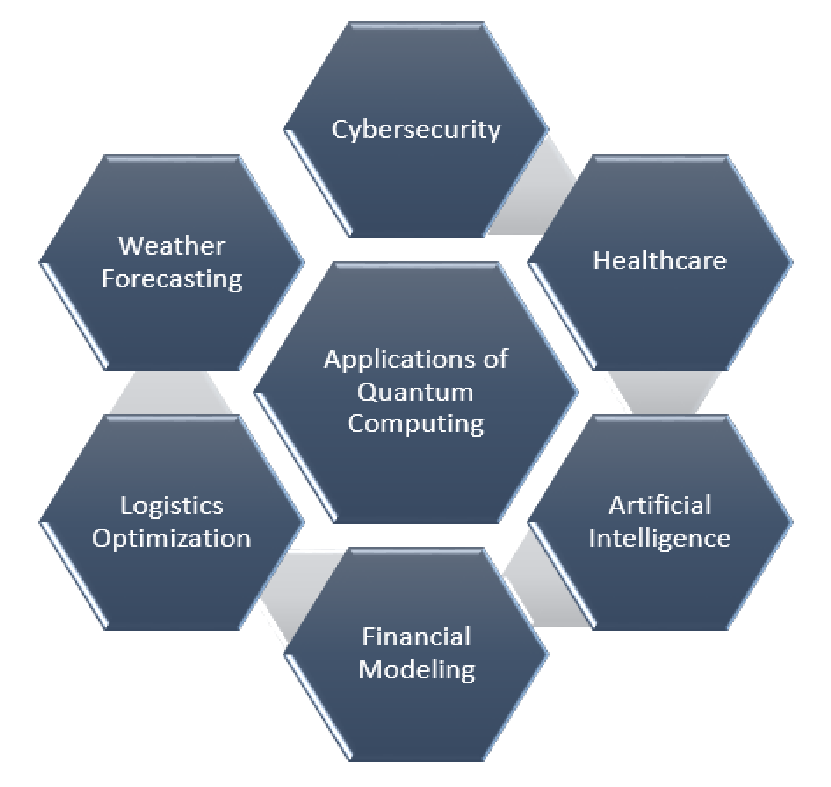Font size:
Print
Quantum Technology in Healthcare Sector
Context: Researchers at the University of Tokyo discovered “gold quantum needles”, a novel elongated nanocluster structure responsive to near-infrared light. This breakthrough enables high-resolution biomedical imaging and efficient light-energy conversion, marking a major advance in nanotechnology.

What is Quantum Technology?
- It is based on the principles of quantum mechanics, the science of sub-atomic particles.
- It is not new—applications like nuclear power and semiconductors already rely on quantum principles.
- The new wave of quantum technology focuses on harnessing these principles more directly through quantum computing, quantum sensing, and quantum communication.
Key Principles of Quantum Mechanics:
- Superposition: A particle (or qubit) can exist in multiple states (0 and 1) simultaneously, unlike classical bits.
- Entanglement: Strong correlations between particles that remain linked even when separated, enabling ultra-secure communications.
- Tunnelling: Particles can pass through barriers, useful in sensors and computing.
How is it helping in the Healthcare sector?
Quantum technologies are transforming healthcare through better imaging, diagnostics, drug development, and secure data management.
- Biomedical Imaging: Quantum needles (like those discovered in the University of Tokyo study) exhibit near-infrared responsiveness — ideal for deep-tissue imaging. Quantum-enhanced MRI and PET scans can produce much higher-resolution images. Quantum dots and nanoclusters provide targeted bio-labelling and tracking at the molecular scale.
- Diagnostics: Quantum sensors detect minute biological signals, such as single molecules or proteins related to early-stage diseases (e.g., cancer, Alzheimer’s). Quantum-enhanced biosensors improve sensitivity in blood testing and real-time monitoring.
- Drug Discovery and Molecular Simulation: Quantum computers can simulate molecular interactions at atomic precision, speeding up Protein folding analysis, Drug-target interactions, and Vaccine development.
- Secure Medical Data: Quantum cryptography ensures secure transmission and storage of sensitive patient records and genetic data, which are increasingly digitised and vulnerable.
What are the associated concerns?
Quantum technology, while promising, comes with several technical, ethical, and security-related challenges:
- High Cost and Complexity: Building and maintaining quantum systems (e.g., quantum computers or nanostructures) is expensive and resource-intensive. Requires cryogenic temperatures, vacuum systems, and highly specialised environments.
- Ethical Concerns:
- Quantum diagnostics and imaging could access ultra-sensitive health data. Raises questions about data privacy, surveillance, and consent.
- Unregulated use of quantum-enhanced genomics could lead to genetic discrimination.
- Security Risks: Quantum computing poses a threat to current encryption standards, risking data leaks in healthcare systems if cryptography isn’t quantum-safe. “Harvest now, decrypt later” attacks (where encrypted data is stored today to be decrypted by future quantum computers) are a growing concern.
- Regulatory and Skill Gaps: Lack of global standards and skilled quantum scientists slows safe adoption. Overhyped expectations can lead to public mistrust or misapplication in sensitive areas like healthcare.
What measures has India taken for its adoption?
-
- National Quantum Mission (NQM): Launched in 2023 with a ₹6,000 crore budget till 2031, targets breakthroughs in quantum computing (1000 qubits), satellite-based quantum communication (2000 km), advanced quantum sensors & atomic clocks, and development of quantum materials like superconductors and photonic devices.
- Institutional Support: Department of Science and Technology (DST) is the nodal agency for NQM. Quantum-enabled Science & Technology (QuEST) program (2019) laid the groundwork. Indian Institute of Science (IISc), IITs, and TIFR are developing quantum labs and hardware.
- International Technology Engagement Strategy (ITES-Q): Released in April 2025 by the Office of the Principal Scientific Adviser, this strategy outlines India’s global posture in quantum science, innovation, and standard-setting.
- Quantum Frontier Tech Hub (NITI Aayog): A strategic think tank initiative to align quantum R&D with national security, economic growth, and digital sovereignty.
- Collaboration with Industry and Startups: Startups like QNu Labs, BosonQ, and TuringQ are working on: Quantum-safe encryption, Quantum simulation for pharmaceuticals. Partnerships with ISRO, DRDO, and CSIR on applied quantum research.
